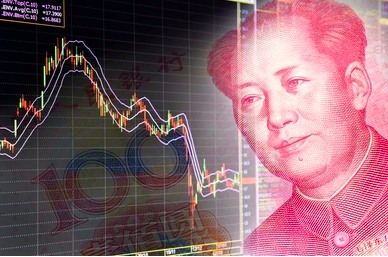The RMB is swiftly emerging as a crucial player in the global monetary system. Its role as an international currency has been enhanced in every way, making it the fifth most often used currency for international payments, the fifth most crucial reserve currency, and the third greatest weighting in the basket of Special Drawing Rights at the IMF. The amount of cross-border RMB settlements is growing, surpassing 42 trillion yuan ($6.09 trillion) in 2022, more than three times from 2017.
One significant move was Brazil’s announcement that it would accept yuan-based trade settlements and investments, the creation of a yuan clearing bank, and a February agreement between central banks. This development furthers the RMB internationalization and illustrates the RMB’s infrastructure for cross-border use. Argentina and other countries have also decided to stop paying for all imports from China in US dollars and start using RMB instead.
As was previously indicated, Argentina is one of the nations that has expressed interest in utilizing the RMB for international trade. With high inflation rates and a weakening economy, the nation has recently experienced economic instability. As a result, the Argentine government has been looking for measures to diversify its foreign exchange reserves and lessen its reliance on the US dollar.
In 2019, Argentina issued more than $2.8 billion in RMB-denominated government debt, making it the first country in Latin America to do so. Argentina was able to expand its investor base beyond just those who invest in US dollars as a result of this development, giving it access to fresh financial resources. Argentina has also signed other agreements, including one that permits the use of the RMB in transactions, to promote investment and trade between the two countries.
The RMB’s investment and hedging capabilities have gradually improved due to the restoration of China’s economic development momentum and the further opening up of the Chinese financial sector. The initial network effects of the RMB for international use have been influenced by the growth of the offshore RMB market, the opening of the domestic financial markets, the establishment of RMB clearing banks and local currency swap networks, and the ongoing development of Chinese financial institutions’ overseas organizational structures.
Additionally, as the global geopolitical and economic development environment has changed, the development of the international monetary system has become more diverse. More nations are reducing their reliance on the US dollar more quickly due to significant changes in US monetary policy. The RMB’s growing acceptance in Argentina will boost the Chinese currency’s legitimacy, which might lead to further RMB usage abroad.
The RMB is undoubtedly having a bigger and bigger effect on the world’s monetary system. Its growing cross-border settlement volume, greater usage in trade settlements, and strengthen investment and hedging activities have helped it establish itself as a competitive alternative to the US dollar. As more nations want to wean themselves off the US dollar, the value and importance of the RMB as a global reserve currency are anticipated to rise.
















